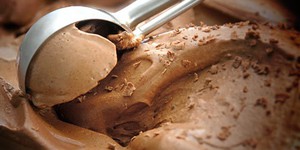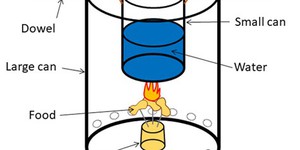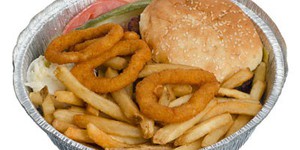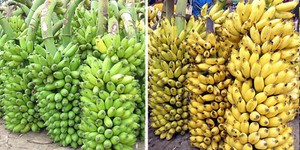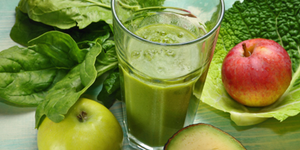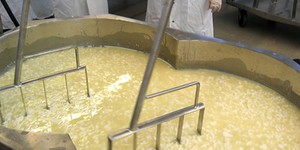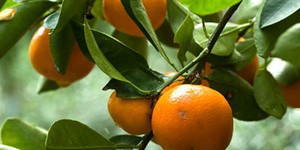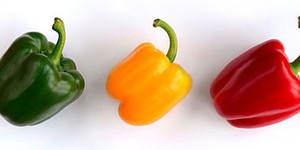Tenth Grade, Cooking & Food Science Science Projects (12 results)
Who doesn't love food? It's fun to make, it's fun to eat, it's fun to ...study? That's right! There is a lot of science that goes into the everyday foods that you love. Explore questions such as how baking ingredients work, how and why certain ingredients mix well together, and why people's tastes differ.
|
Select a resource
Sort by
|
Have you ever made your own ice cream? If you have, you probably know that you need to get the ice cream mixture really cold to freeze it quickly. Ice cubes alone will not do the job, but if you add chemicals, such as salt or sugar, to the ice cubes that surround the ice cream container, the mixture gets cold enough to freeze. Why does that work? How does adding salt or sugar affect the freezing point of water? Find out with this ice-cold science project and use your results to make your own…
Read more
Featured
Have you heard that garlic powder is supposed to inhibit the growth of bacteria? Which do you think would make a better disinfectant: a solution of garlic powder or a solution of bleach? This project shows you a straightforward way to compare the effectiveness of different disinfectants (or other antimicrobial agents), by measuring zones of inhibition on a culture plate.
Read more
Which type of orange juice has the most vitamin C? In this science project, you will learn how to measure the amount of vitamin C in a solution using an iodine titration method. You will compare the amount of vitamin C in three different types of orange juice: homemade, premium not-from-concentrate, and orange juice made from frozen concentrate. Which do you think will have the most vitamin C?
Read more
New
Drones are small, fast, and maneuverable - this can make them very hard to knock down! Check out this Mark Rober video where he explores both how professional defense companies and some backyard YouTube engineers tackle the problem of knocking drones out of the sky. Can you take this engineering challenge on yourself? What methods can you devise to take down a drone? Which one works the best?
Drones can be expensive, and you probably do not want to risk damaging a $1,000 drone for your science…
Read more
Have you ever wondered how nutritionists know how many Calories a certain food contains? In this project you will learn a method for measuring how many Calories (how much chemical energy) is available in different types of food. You will build your own calorimeter to capture the energy released by burning a small food item, like a nut or a piece of popcorn. This project gives a new meaning to the phrase "burning calories!"
Read more
Have you ever been told to avoid certain foods because they contain too much fat? Almost every food we eat has some amount of fat in it; often in an invisible form so we do not even notice. However, eating healthy does not mean getting rid of all fat in your diet. On the contrary, fat is an essential nutrient for your body! Only consuming too much of certain fat types creates problems. Are you curious about how to determine the fat content of different foods? Gather some chips, chocolate, and…
Read more
You have most likely witnessed the change that occurs as a banana ripens It changes from green and relatively hard to yellow and soft. The flavor also changes, from bitter to sweet. What happens during ripening? One big change is the increase in sugar content. In this food science fair project, you will measure how the sugar content of a banana changes as it ripens.
Read more
New
If someone asks you to draw a picture of a doctor, lawyer, or engineer, what first pops into your mind? The race and gender of the person you imagine might be shaped by your personal life experiences, such as whether you have family members in those professions, or what representations of them you have seen on TV or online. What do you think will happen if you ask an artificial intelligence (AI) program to generate the picture instead? Will pictures generated by AI reflect the true real-world…
Read more
Do you enjoy drinking smoothies packed full of berries and other tasty fruits? Or maybe you like drinking a creamy milkshake with peanut butter, chocolate, and bananas. Smoothies and milkshakes are often tasty to us because of the sugar in them. But did you know there are different kinds of sugar? Some ingredients in a smoothie can have more than one kind of sugar in them, and our bodies process each kind of sugar differently. In this science project, you will measure the concentration of…
Read more
Have you ever gone to pour yourself a cup of milk and all you get is milk clumps? What happened to the milk is called coagulation, which is the mechanism that occurs when proteins in the milk clump together. While you do not necessarily want this in your milk, without coagulation (or curdling), there would not be any cheese or yogurt, which is why it is a very important process in the food industry. But what makes milk curdle? In this science project you will use pineapple juice to curdle milk…
Read more
Are oranges highest in vitamin C when they are fresh from the tree (or, in a pinch, the grocery shelf)? Does the amount of vitamin C in an orange change over time, after it has been picked? In this science project, you will find answers to these questions by measuring the amount of vitamin C in a solution using an iodine titration method.
Read more
Vitamin C is a water-soluble vitamin that has many functions in the body. Vitamin C is needed to bolster the immune system. It is an antioxidant that protects LDL cholesterol from oxidative damage, and it is needed to make collagen, a substance that strengthens many parts of the body, such as muscles and blood vessels. Our bodies do not make vitamin C, so we must get it from dietary sources. Citrus fruits, carrots, avocados, and spinach all have vitamin C. Bell peppers, like the ones shown in…
Read more
Who doesn't love soaking up the last bit of gravy on Thanksgiving? Or dipping a crusty cube of bread into a cheese fondue? Or scooping up the thick juices from a fruit pie? Sauces make eating a joy! They provide concentrated flavor in a thickened liquid form, with a pleasing texture and consistency that carries or compliments the flavor of the rest of the food. No matter if they're salty, spicy, savory, or sweet, sauces make foods richer and more special.
There are many ways to thicken sauces,…
Read more
|
Explore Our Science Videos
Explore the Wet Sand Effect – STEM activity
How can air pressure prevent leaks?
Making Shadow Puppets – STEM Activity

